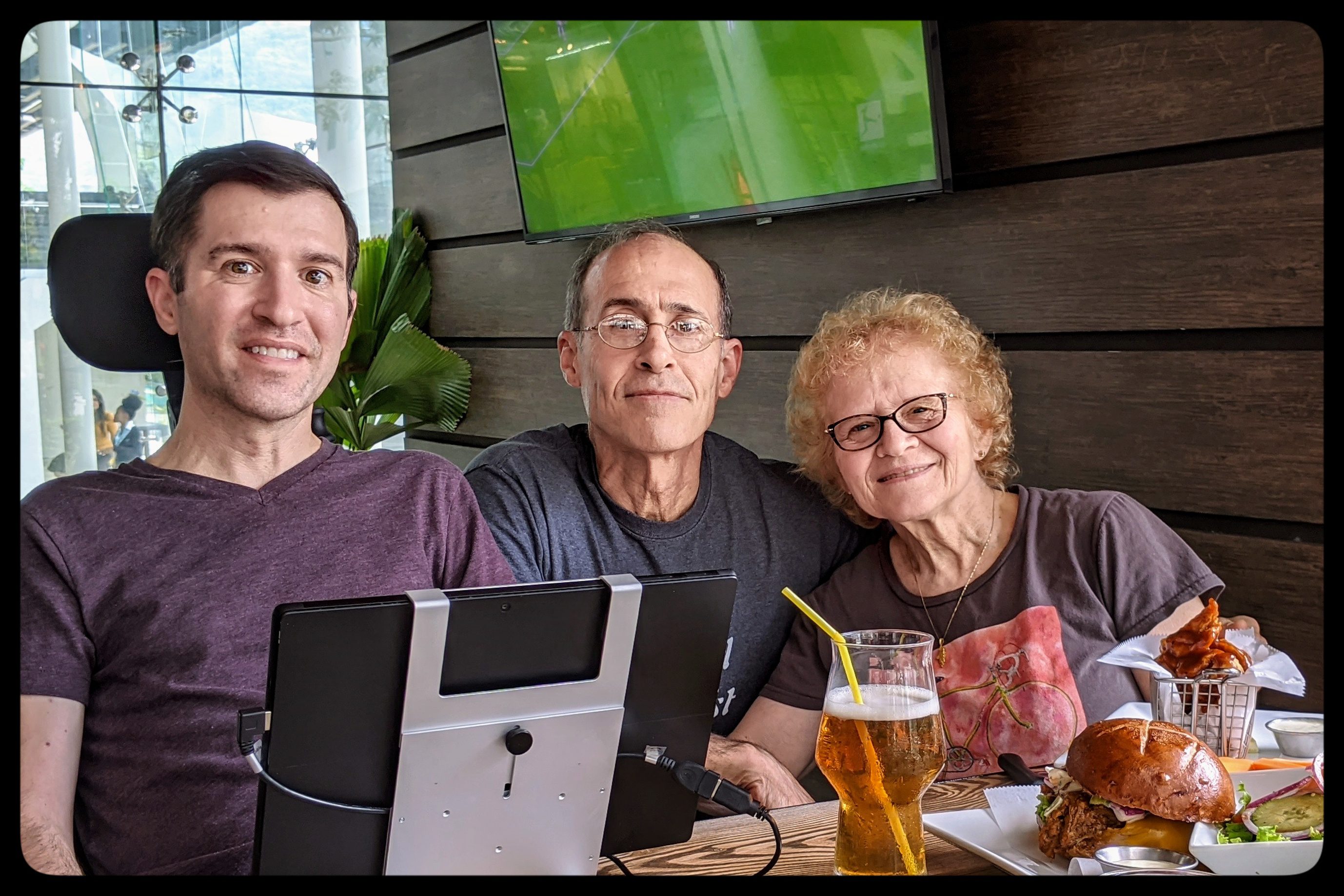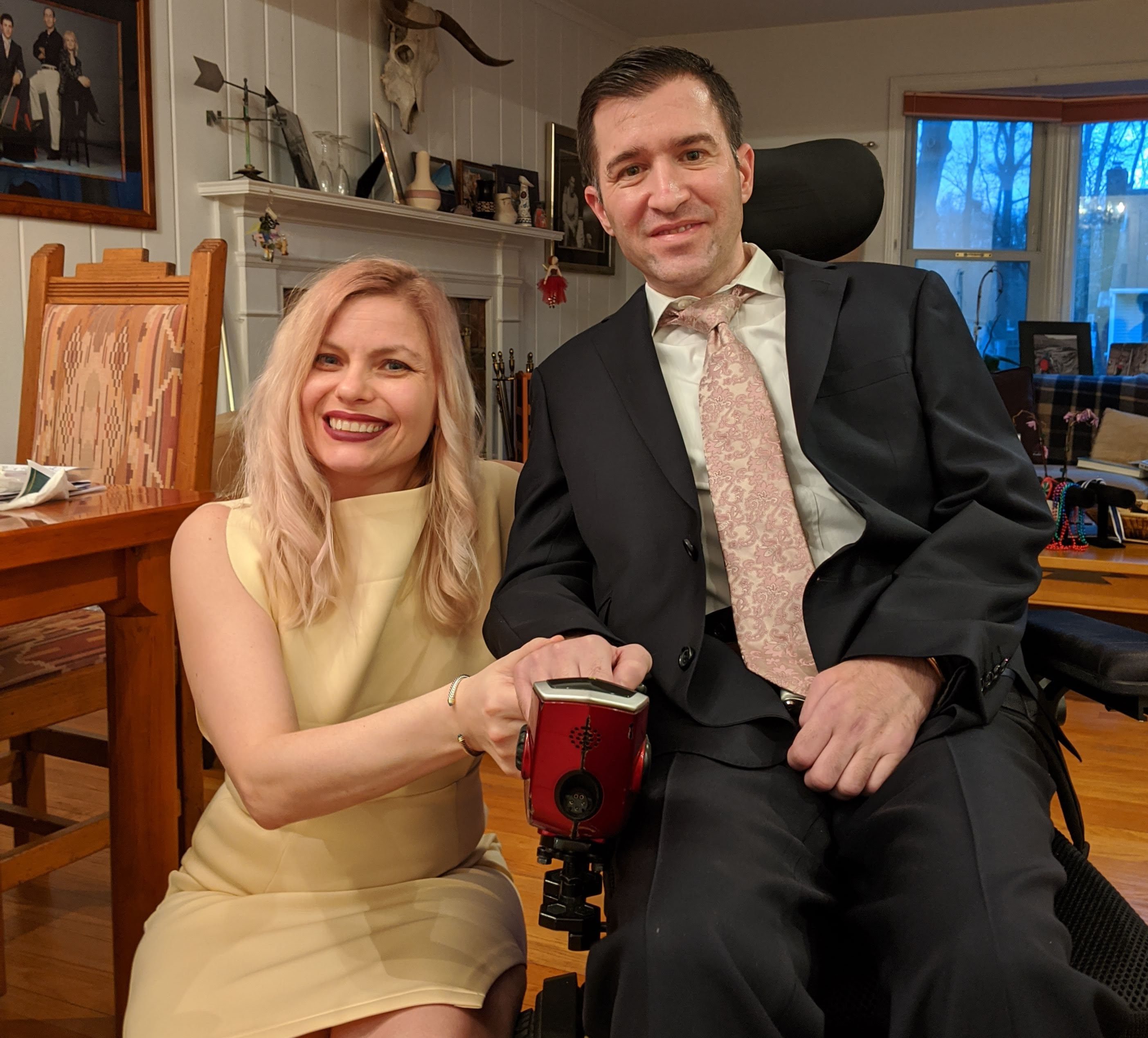Editors note: Jeremy Schreiber passed away on October 29, 2021. Jeremy was a remarkable individual known for his involvement in the ALS community, and his legacy will be remembered by many. This article will remain on our website to honor his memory and has been updated to reflect past tense where relevant.
—
For tech junkies and suburban commuters, a future with self-driving cars is a fun but fleeting thought on long trips and at stoplights. For people with ALS, also known as PALS, a future with self-driving cars is a world with one less limitation than there is today.
While self-driving cars would be nice, people diagnosed with ALS like Jeremy Schreiber understand that advancement in mobility technology is just one bullet point on a long list of needs.
“We need technology in our homes and in our medicine,” Schreiber said. “Smart home technology that makes adjustments to our life-saving equipment the moment our vitals change, self-driving cars that accommodate our self-driving wheelchairs, drug repurposing, disease on a chip, and stem cells. All these things hold promise for a cure, but this isn’t enough.”
Less than three years before this conversation took place, Schreiber was an accomplished sales professional with a resume that included stints at several Fortune 500 companies. He was an avid traveler, got big air on his snowboard, and chased adrenaline to the highest of heights (literally) as a frequent rock climber.
However, his ALS diagnosis in January 2018 halted his career and hobbies, immeasurably and permanently altering Schreiber’s life and that of his parents, Ronnye and Fred Schreiber. A longtime chemist, Fred stepped away from his own job in favor of retirement when Jeremy was diagnosed. He and Ronnye, CEO of an event production company, quickly recognized the increased role they would soon play in Jeremy’s imminent battle with the disease.
“We had [Jeremy] move back home with us and realized immediately that our house was not designed for him to be able to get around,” Fred said. “We had tremendous support from an ADA-knowledgeable architect, and Jeremy’s friends set up a GoFundMe site which helped with the addition of a wing that has a lift and a ceiling track to carry him to the bathroom and bedroom.”
Those renovations ensured that everything Jeremy needed was located on one floor of the Schreiber family home. Despite the heartache of seeing their son diagnosed with ALS, the stress of remodeling their home to accommodate his needs and the upheaval caused by his disease’s progression, Fred and Ronnye remained optimistic about Jeremy’s journey.
“We [were] sorry that his ‘real’ life had to come to a halt with ALS, but we [were] thrilled to be the ones to take care of him,” Ronnye added. “Some would think that our lives were affected negatively, but we [loved] having our family together under one roof.”
It has now been over 60 years since famed baseball player Lou Gehrig — the man most publicly associated with the disease — received his diagnosis, and there are still only a few drugs used to treat ALS. Jeremy told Target ALS at the time of this interview that none of these drugs had much success in slowing the disease for him.
Though it wasn’t a replacement for a cure, what helped Jeremy and his parents cope was the assistance received from ALS patient and caregiver associations and other industry groups.
“Support groups for both PALS and CALS (caregivers) provided comfort and helped us feel that we are not alone in this journey,” Fred said. “[After] the diagnosis, we learned so much from others about how to keep Jeremy comfortable and as healthy as possible.”
In addition to inspirational messages of hope, the Schreibers also benefited from “loan closets” that supplied patients like Jeremy with durable medical equipment including ramps, wheelchairs, and other essentials.
The COVID-19 pandemic amplified some of the challenges experienced by PALS and their caregivers. Fred and Ronnye said that they tried to remain active by taking turns exercising outside, though they were avoiding visiting stores like the supermarket — a task Jeremy’s friends took over during that time. Because PALS have weakened breathing muscles, they can struggle with fighting off lung infections, which makes them particularly vulnerable to the COVID-19 virus.
Eventually, Fred and Ronnye settled into a routine that worked well and felt comfortable to them. Ultimately, they said they would love to see an environment where newly diagnosed patients and their caregivers can be paired with a mentor to help guide them through those first few mentally and physically grueling months.
As for Jeremy, after ALS robbed him of the chance to rack up sales awards and scale summits, he refocused his energies on writing, educating, and encouraging. His book, “Invisible Nation,” was published in June 2022 posthumously. You can find out more about the book and read musings about his life, health, and wellness on his blog at www.neversayinvisible.com.
Jeremy had a message that he asked Target ALS to spread far and wide: “We, the PALS and CALS of the world, challenge you to be brave and bold, innovate and collaborate, advocate for change, and be our heroes. Only then can we start living with the disease and stop dying from it.”
Challenge accepted, Jeremy. It’s for incredible PALS like him, gone too soon, that we continue our work for every day and will do so until we realize a world in which no one dies of ALS.
TargetALS.org is intended for informational purposes only. Opinions expressed may not be that of Target ALS or its employees. For more information about our digital policies, click here.






